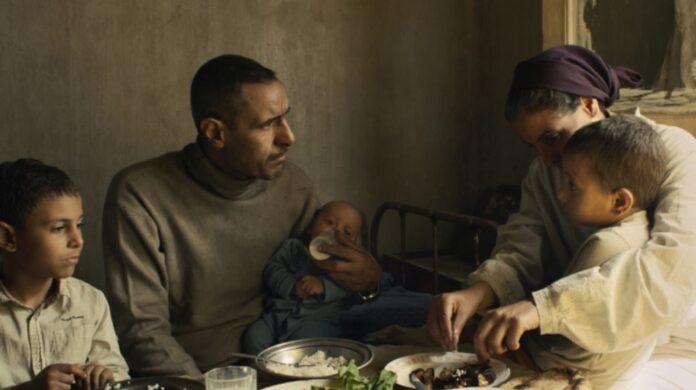CHENNAI: Omar El-Zohairy’s debut Egyptian work, “Feathers,” was both lauded and lambasted. Despite its big win at Cannes Critics Week with a Grand Prize and the Best Arab Narrative Film trophy at the recent El Gouna Film Festival, it was viewed as offensive to the country by some. Some Egyptian directors and actors, including Sherif Mounir, Ahmed Rizk and Ashraf Abdel Baqi, walked out of the screening last week, claiming it portrayed Egypt in a negative light.
Be that as it may, “Feathers” is an absurdist drama that presents a disturbing cocktail of magic, mystery and madness, weaving its plot through acutely sparse frames. A story of a meek wife (Demyana Nassar) and a horridly domineering husband (Samy Bassiouny) with three very young children, she is portrayed as subdued and slavish.
Listless to the point of looking terribly unhappy, she faintly sparkles when he decides to organize a magic show to celebrate his son’s fourth birthday. It ends in a disaster when the magician turns the husband into a chicken, but fails to transform him back to his original self. The wife is left with a bird that she feeds and nurses. It is only after her back-breaking search to find the magician, all the while struggling to earn a pittance to buy food for her family, that the director lets us into a horrible truth and its repercussions.
Similar to somber, straight-faced Finnish helmer Aki Kaurismaki’s work, “Feathers” is shot in greys and dull lighting. The tonal mix establishes the stark reality of a woman who eventually graduates from utter passivity to surprising dominance. The drab looking buildings, the exposed pipelines and the family’s bare and dingy home, filmed with incisive camerawork by Kamal Samy, add to the sheer helplessness of the wife. But the script is engrossing, with a narrative that is dark, hiding an unbelievable piece of information, which when it comes will throw you off guard.
The movie works as a brutal look at patriarchy, though this is handled with admirable restraint in the screenplay, co-written by El-Zohairy and Ahmed Amer. With the woman’s attitude changing so subtly, the drama underplays the climax. It is not really about revenge but about discovering one’s self-respect.

